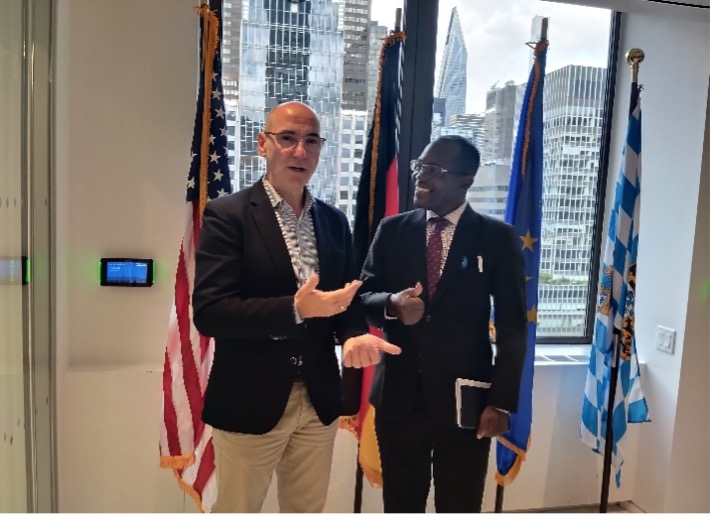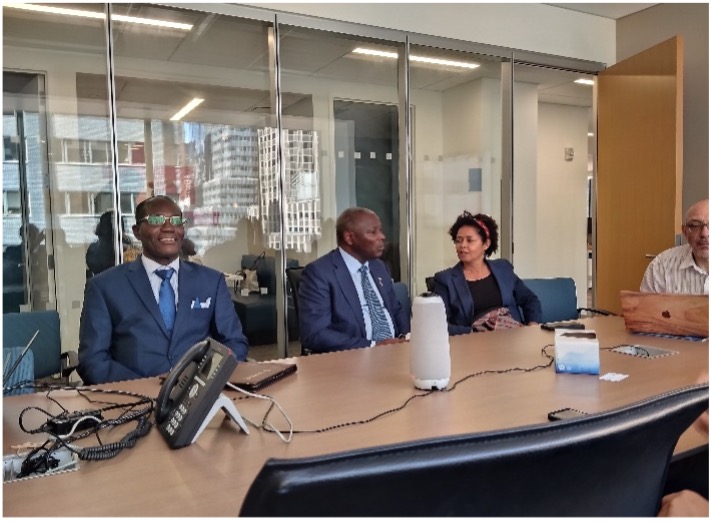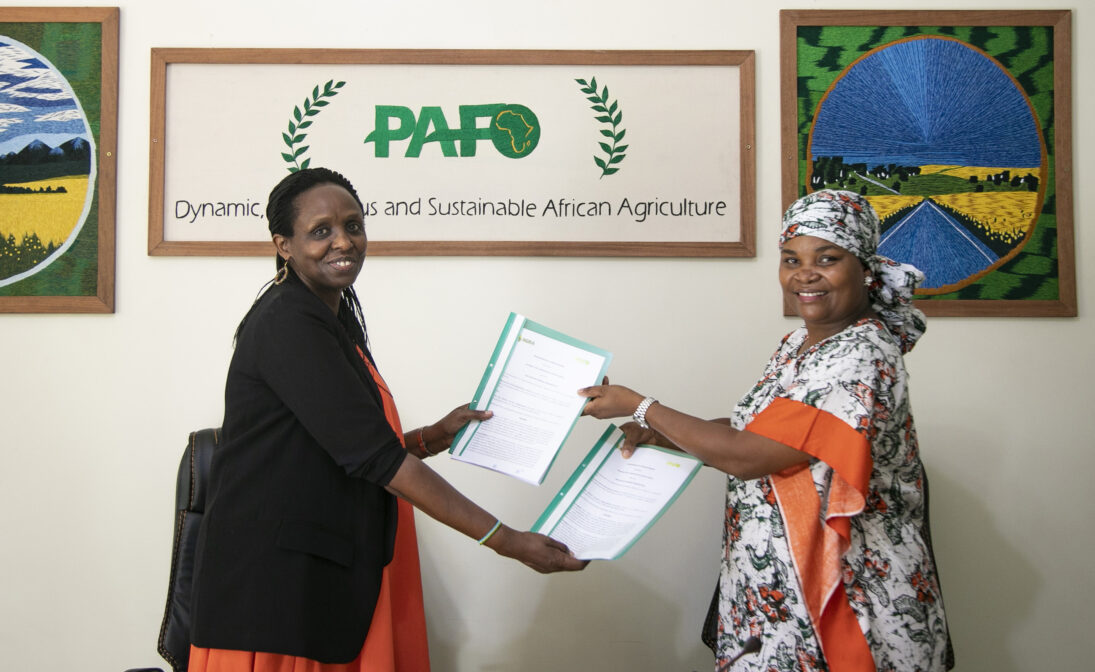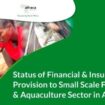

(First picture, right) Mr. Thomas Ammerl, Head of Unit, Bavarian Research Alliance (Bayfor) with Mr. Thomas Essel, AFRACA Secretary General during BayFor side event at UNGA7. (Second picture, left) Mr. Thomas Essel, AFRACA Secretary General, Dr. James Mwangi, CBS, Equity Bank Group and Conservationist, Dr. Paula Kahumbu during the Kenya Development Alliance side event at UNGA78
New connections! New opportunities!
The Science Summit convened alongside the 78th Session of the United Nations General Assembly. It is customary for the high-level debate to be dotted with side events and parallel events organized outside the formal programme of the session which provides an excellent opportunity for UN agencies, NGOs and other civil society groups to discuss thematic issues.
The objective of the Summit is to enable science collaborations to demonstrate how science supports the attainment of the UN SDGs and Agenda 2030. AFRACAs new connection and collaborating partner in the on-going INCITIS-Food Project, Bavarian Research Alliance (BayFor) extended an invitation to AFRACA to attend their side event themed ‘European Funding for Research and Innovation and the participation of non-European partners from the Americas and the Global South’. The event highlighted new funding opportunities and snippets of on-going research initiatives including the INCITIS-Food project funded under Horizon Europe – the EU’s new framework Programme for Research and Innovation (2021-2027).
Another notable side event was organized by the Kenya Diaspora Alliance. During the discussions it was worth noting that Africa continues to attract ‘non-traditional’ foreign direct investment directed to SMEs through diaspora networks. The unique and innovative crowdfunding model for African SMEs through the WIDU Africa grant project initiative, seeks to tap into the ever-growing Diaspora remittances, redirecting some of the funds to support micro and small enterprises in Africa. Remittances remain a resilient and vital lifeline for millions of African families and far exceeds official development assistance. However, the majority of this money is used for direct consumption to meet daily needs and only little is directly invested in businesses.




